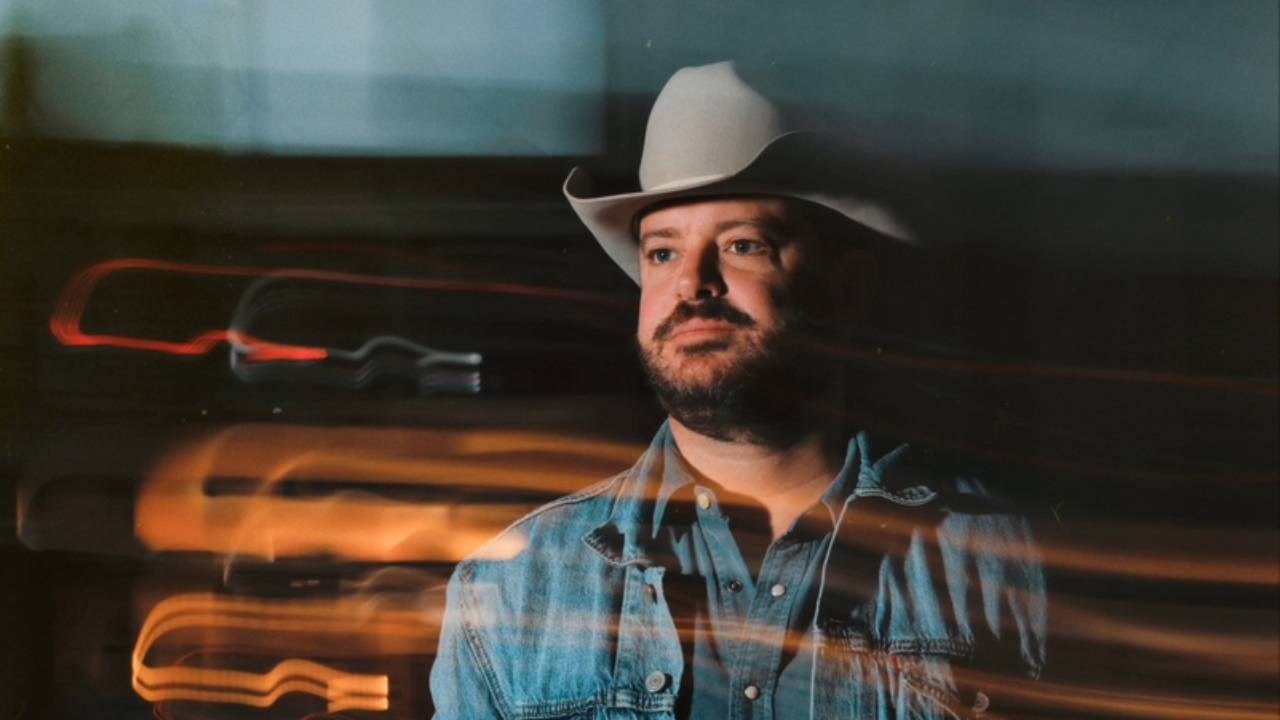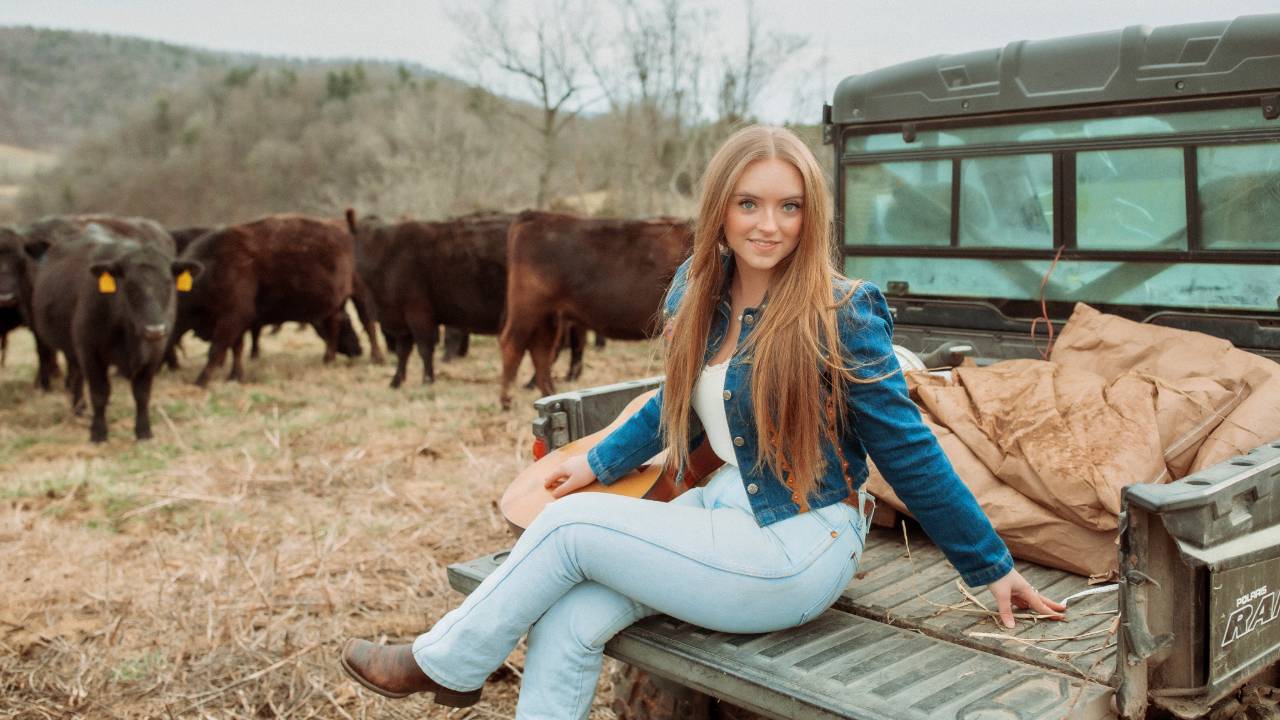EXCLUSIVE: Ingrid Andress Breaks Pop's Rules to Achieve Country Stardom

Ingrid Andress has joined an emerging generation of female singer-songwriters in country music for whom releasing plain songs about good feelings denies them the scope and impact of their creative potential. The 29-year old performer’s two-year run of frank, candid creations that continue a recent challenge to conventional expectations of country music’s mainstream sound has culminated in her 2021 Grammy nomination for Best New Artist.
In this conversation, CMT discusses with Andress her successful songwriting techniques, including the influence of human psychology on her lyricism. Moreover, her single "More Hearts Than Mine," album Lady Like, and The Chicks’ inspiration upon her career are explored.
CMT: As far as your evolution, you started as a songwriter for performers like Sam Hunt, Alicia Keys, and Charli XCX. Now, you're in space as an artist that feels like a very natural evolution. Is it fair to say that this development is in reality as comfortable as it appears from afar?
Ingrid Andress: I’ve always wanted to be an artist. I was intrigued by live performance, but I took more time to figure out how to write and craft songs that were special to me. Once I wrote songs that I believed in, then everything else came pretty naturally.
CMT: To me, your greatest strength as a performer lies in your ability to create universally understandable songs. What aids your songwriting to achieve this goal?
IA: The more literal you can be [in your songwriting], the more people can see themselves in that situation [that you’re describing]. Even if they’ve never experienced it before, there’s something about describing that moment by painting a picture that allows people to step into the world of that song.
CMT: Country's growth, and your songs having a role in the genre's recent boom, is impressive. What are your thoughts about the genre's recent seeming expansion of sorts?
IA: Country’s expanding and people are finding what country looks like to them, in their branch of the genre. People once thought Johnny Cash wasn’t country, and now he’s a country legend. This is a natural progression for a genre to continue to develop different branches growing with more unique stories. It will allow for country to become a more powerful genre moving forward. These perspectives will enable people beyond those interested in the “hot white male” viewpoint to relate [to it].
CMT: You -- like many country artists experiencing success right now -- are quick to name The Chicks as huge inspirations. What is it about them that has been instrumental in your career, especially of late?
IA: I appreciated [The Chicks’] instrumentation. They’re great at that. Also, how they approached songwriting was special and iconic for me. It was one of the first times I’d heard women in country paint vivid stories that were open to a broader population in a widely relatable manner. Especially on the song “Wide Open Spaces.” Even though not everyone comes from a small town, the feeling of leaving a small town -- taking a risk and branching out -- is universal. Hearing songs like those got my mind working and made me ask myself, “how can I get my stories to not just apply to me, but to connect with everyone?”
CMT: "More Hearts Than Mine" is a fantastic song. It actually continues a streak of yours in writing songs related to the moment when someone brings their partner home to meet their family. What is it about that moment that makes it such a huge creative inspiration in your material?
IA: Well, I wrote ["More Hearts Than Mine"] about a real-life situation. I’m very close to my family. There are seven of us in total, and I’m very protective of them. Because we’re so close, they want to love the people I love as quickly as I love them. [However], in past experiences, when I have introduced them to someone I was dating, years after I broke up with them, they still bring this person up and want to know how they’re doing. That showed me that my family falls harder and faster in love with people than I do. I realize that many families do that because they want [very much] to embrace who their relative is in love with at that time.
Whoever meets my family needs to know that there’s a lot more involved than just the two of us. There’s a whole family here.
CMT: As well, you have a particular gift in really being able to write powerfully about the intersection of bars, drinking, and romance. How did this skill develop?
IA: It’s all about being honest about a situation. I tell stories about the real lives of myself and others that are hard for me to make up. I like living life, being observant, and experiencing things. When I go out, I’m very social, but I also like people-watching, seeing how people behave, and picking up on small details. Understanding why humans make the decisions they make is something I do as a writer.
CMT: I also wanted to ask about your talent insofar as being able to pair your words with inherently catchy melodies. Is this a skill that was already apparent, or one you have developed over time?
IA: Melodies are important to me because as much as I am through and through a lyric person, a song’s melody makes someone want to hear what you are saying. It blew my mind to learn that many people don’t pay attention to the lyrics until they’ve decided that they like the melody. Similarly, as a vocalist, having a melody that I love to sing over is really important to my writing process—being excited about the melody aids in writing the song.
CMT: Working in pop and transferring those skills to other genres, namely country. How has this adaption been for you as a career development?
IA: I love breaking pop’s rules, actually! However, you have to learn rules before you can break them. Learning the structure of pop music provided a fun challenge to [ultimately] make songs that sounded “pop” but have things like lyrics that don’t match syllables or have “ooooohs” for a chorus. Developing my own style has actually kept me sane.
CMT: You've been working for quite some time, and now it's yielded you the honor of being nominated for Best New Artist at the Grammys. What does this mean for you, your music, and the industry, in general?
IA: I am proud to represent country music in the Best New Artist category because I hope it shows people that country is evolving and is very much on the map. It will be a really important genre moving forward for telling America’s stories and more. I’m just mind-blown. It shows that something is working in my career.





